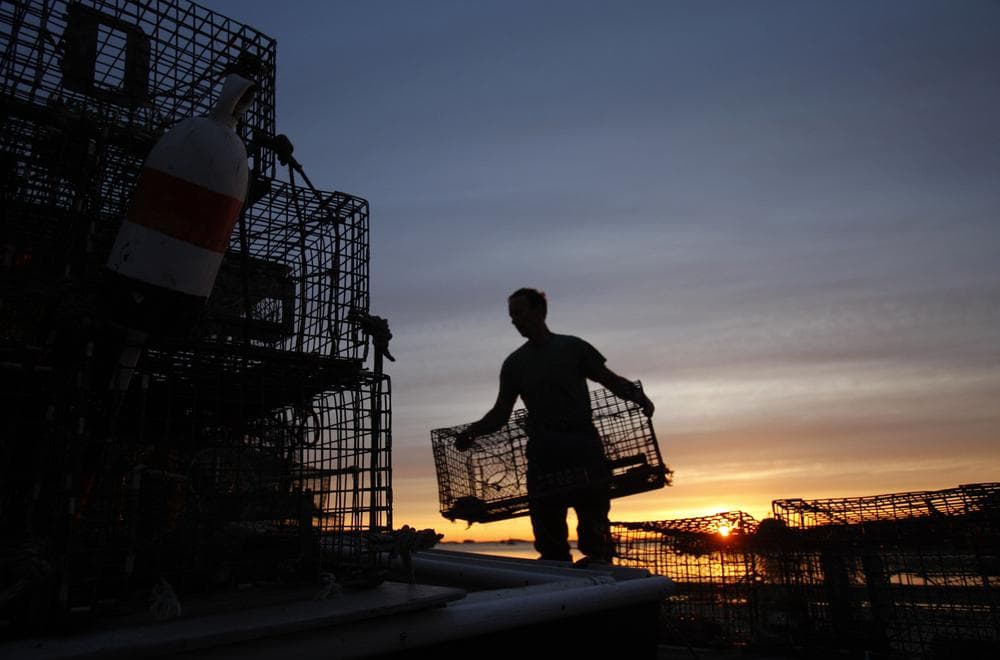Advertisement
Maine Lobstermen Risk Getting Caught In Trap
Resume
Native Americans roasted them on spits, English colonists shunned them as food for paupers and today we pay $25 to crack them open ourselves at fine dining establishments all over New England. The Maine lobster is one of the most iconic symbols of our regional cuisine. Elisabeth Townsend's new book, "Lobster: A Global History" (Amazon) details the culinary rise of the crustacean.
Here in New England, we only eat one species of lobster, Homarus americanus, and though we tend to think of the red ones, they can also be blue, white or multicolored. Of course, they're tasty, no matter what's on the outside.

Townsend says she'll eat them without butter, to preserve their flavor. She also has a preferred method for killing lobsters. She says that popping them in the freezer first will anesthetize the lobster. Then, drop the lobster into a pot of boiling salt water. Though she admits that we can't know for sure whether the lobster feels any less pain with this method, it is definitely less dangerous for cooks than stabbing the lobster with a sharp knife.
Lobster hauls along the Maine coast have been on the rise. Cod and haddock were once lobsters' natural predators, but since those species were overfished in Maine, the lobsters now thrive in the coastal waters. This has meant big business for lobstermen since the 1990s. Inflation-corrected income from Maine lobsters has grown 400 percent since 1985.
However, professor Bob Steneck of the University of Maine fears that fishermen are overly reliant on a single species. In a recent article for Conservation Biology, Steneck writes that lobstermen risk getting caught in a "gilded trap." Should disease or environmental change damage the lobster stock, the entire fishing industry would suffer. He says that 85 percent of the value of the marine resources is in a single species and that this is akin to having all your money in one stock.

Maine Lobstermen's Association President David Cousens agrees that this situation isn't ideal, but he doesn't see any other way to keep the 10,000 people involved in the Maine fishing industry employed. He says that the groundfish stocks aren't coming back.
But if marine conservationists could return cod and other groundfish species to Maine waters, would fishermen return to a multi-species catch?
"If there's fish in the water, we'll catch them," Cousens said.
Guests:
- Elisabeth Townsend, author, "Lobster: A Global History"
- David Cousens, president, Maine Lobstermen's Association
- Bob Steneck, professor of Oceanography, Marine Biology, and Marine Policy, University of Maine
Historical Lobster Recipes From 'Lobster: A Global History'
- Lobster Bisque (PDF)
- Scalloped Lobster (PDF)
This segment aired on September 1, 2011.